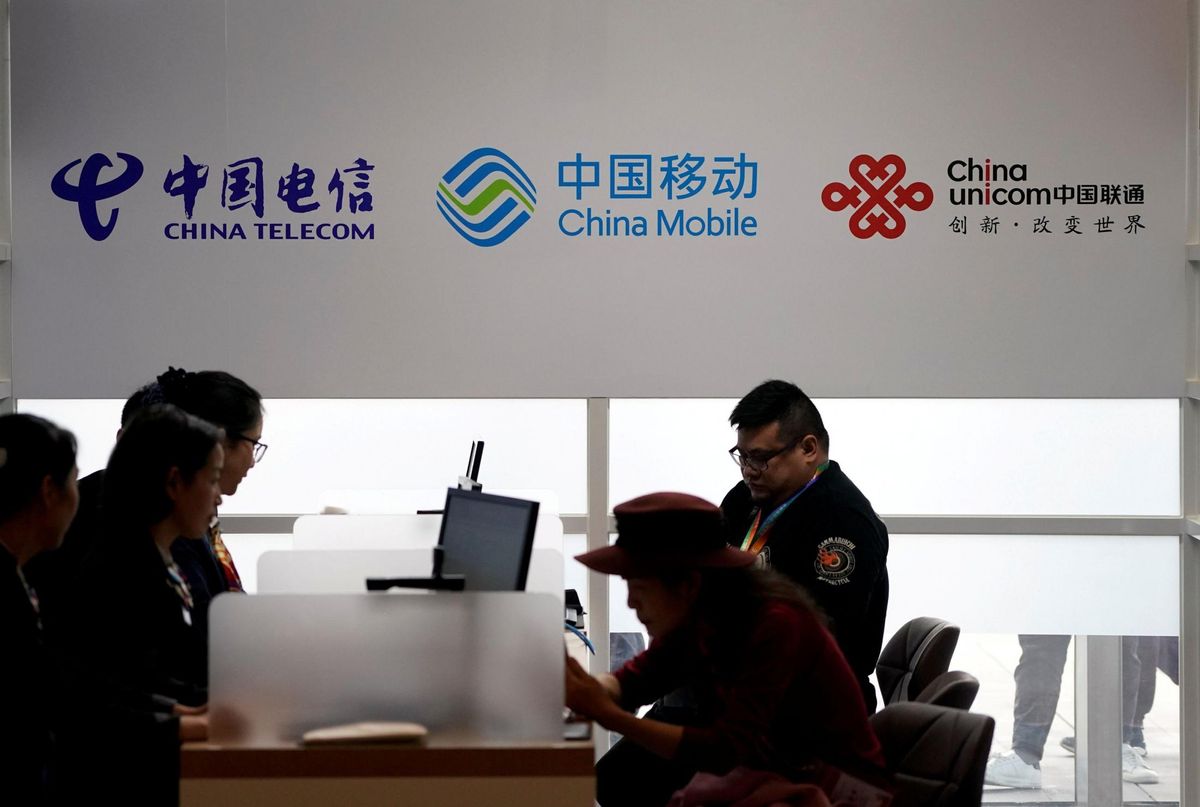With Trump on the way out, the New York Stock Exchange reverses plan to remove Chinese companies

A few minutes every morning is all you need.
Stay up to date on the world's Headlines and Human Stories. It's fun, it's factual, it's fluff-free.
The move by the New York Stock Exchange represents the end of the fraught US-China relations brought about by the Trump administration and signals what may be the beginning of another sort of relationship under President-elect Joe Biden.
The New York Stock Exchange (NYSE) has announced that it will no longer be delisting China’s three biggest state-owned telecommunications companies, just days after it had initially announced a plan to do just that.
The plan would have seen China Mobile Ltd., China Telecom Corp. and China Unicom Hong Kong Ltd. delisted from the NYSE, barring any investment from the United States in these companies.
The move to delist these specific companies was constructed to comply with a November Executive Order by President Donald Trump, which prohibited US investments in companies deemed by the Trump administration to be “Chinese military companies,” that is, possessing significant ties to China’s military.
The reversal will provide some relief to the targeted Chinese companies, though the unexpected nature of the reversal brings with it much uncertainty.
The Trump administration’s final weeks have seen an escalation of US economic pressure and additional sanctioning of Chinese companies. A growing number of Chinese companies have been listed as “Chinese military companies,” warding off US investors.
Despite the escalating tensions, business between some US companies and their Chinese counterparts has nonetheless continued, even as sanctions have contributed to greater geopolitical tensions.
With the NYSE announcing a reversal of its delisting plan, signs suggest that companies and institutions are gearing up for the end of the Trump administration and its fraught relations with China, even as the president continues to echo unfounded claims about election fraud and attempts to pressure officials to “find” votes for him.
However, the Biden administration will not be able to get US-China relations off to a fresh start given the current tensions between the US, its allies and China.
Nevertheless, the move by the NYSE represents the end of the uniquely fraught US-China relations brought about by the Trump administration and signals what may be the beginning of another sort of relationship under President-elect Joe Biden.
Escalating tensions
Tensions between the US and China have continued to escalate, even with President Trump set to leave office on January 20.
In November, President Trump issued an Executive Order forbidding US investments in Chinese companies that US officials stated were either owned or controlled by China’s military.
This order implicated some of China’s biggest companies, such as telecommunications companies China Telecom, China Mobile and China Unicom.
White House trade adviser Peter Navarro claimed President Trump’s order was “designed to choke off American capital to China’s militarization.”
But a Chinese Ministry of Foreign Affairs spokesperson characterized the move as one that will “not only seriously damage the legitimate interests of Chinese companies, but will also damage the interests of investors in various countries, including the United States.”
In response to this order, investment institutions moved to comply with the new requirements.
In early December, indexes provider FTSE Russell announced it would remove eight Chinese companies impacted by President Trump’s November order, effectively preventing US investment in these corporations.
At the end of the year, the NYSE announced plans to delist – that is, to remove from its index – China’s three biggest telecommunications companies, which had been designated “Chinese military companies.”
Reversal
But only days after its announcement, the NYSE announced it would no longer delist China Telecom, China Mobile and China Unicom.
Despite a rising spate of sanctions and other attacks against Chinese companies, some US companies have continued their business on the Chinese mainland, with some even seeking to expand operations.
US electric vehicle manufacturer Tesla, Inc., is one notable example. The Elon Musk-founded company has expanded production in mainland China, which represents the world’s largest electric vehicle market.
Stocks of the affected Chinese companies rose on news of the reversal, even as other index providers, such as FTSE Russell, announced the removal of additional Chinese companies from their indexes to comply with the Trump administration’s order.
Still, the reversal comes as a welcome sign to Chinese financial institutions, which have increasingly sought to open up to further engagement with the West.
According to the Chinese state news agency Xinhua, China in 2020 has “continued to accelerate the opening up of its financial sector.”
In just the last few weeks, China has agreed on a major investment deal with the European Union, allowing EU firms better access to the Chinese market for investment.
US investment banking giant JPMorgan Chase & Co. is also reportedly in talks to establish a joint venture in wealth management with China Merchants Bank Co., another sign that financial connections between China and the West are continuing despite the Trump administration’s sanctions.
The end of the Trump-era does not necessarily signify an end to US-China tensions. The Biden administration will immediately be confronted with a number of pressing issues, most notable of which may be the escalating economic conflict between China and US-ally Australia.
Nonetheless, even with sanctions and the disapproval of the outgoing Trump administration, American financial institutions are looking to once again build bridges with the world’s second-largest economy.
Have a tip or story? Get in touch with our reporters at tips@themilsource.com




Comments ()